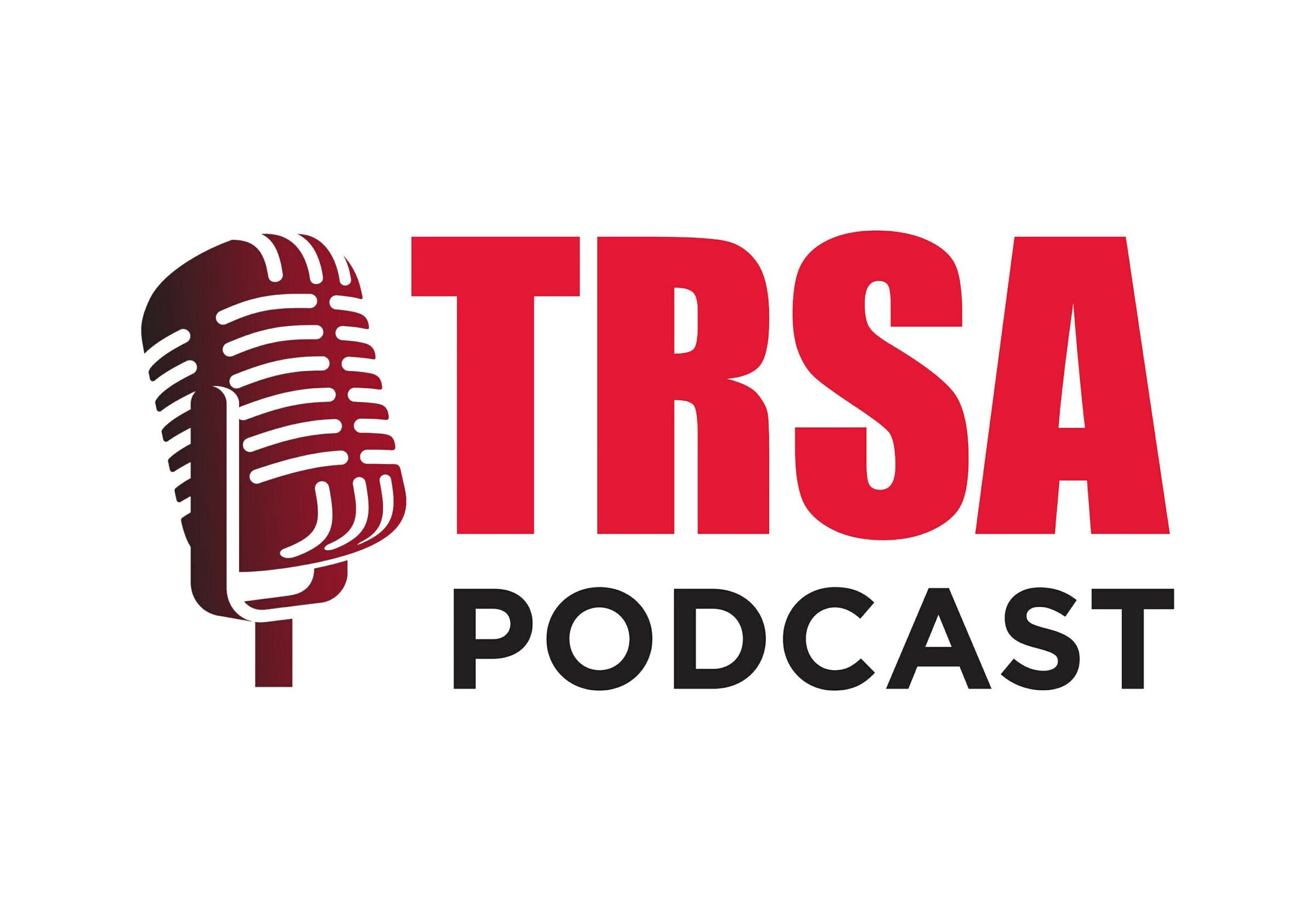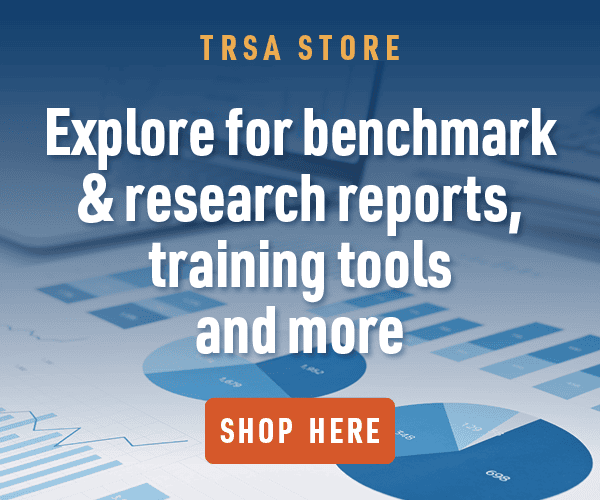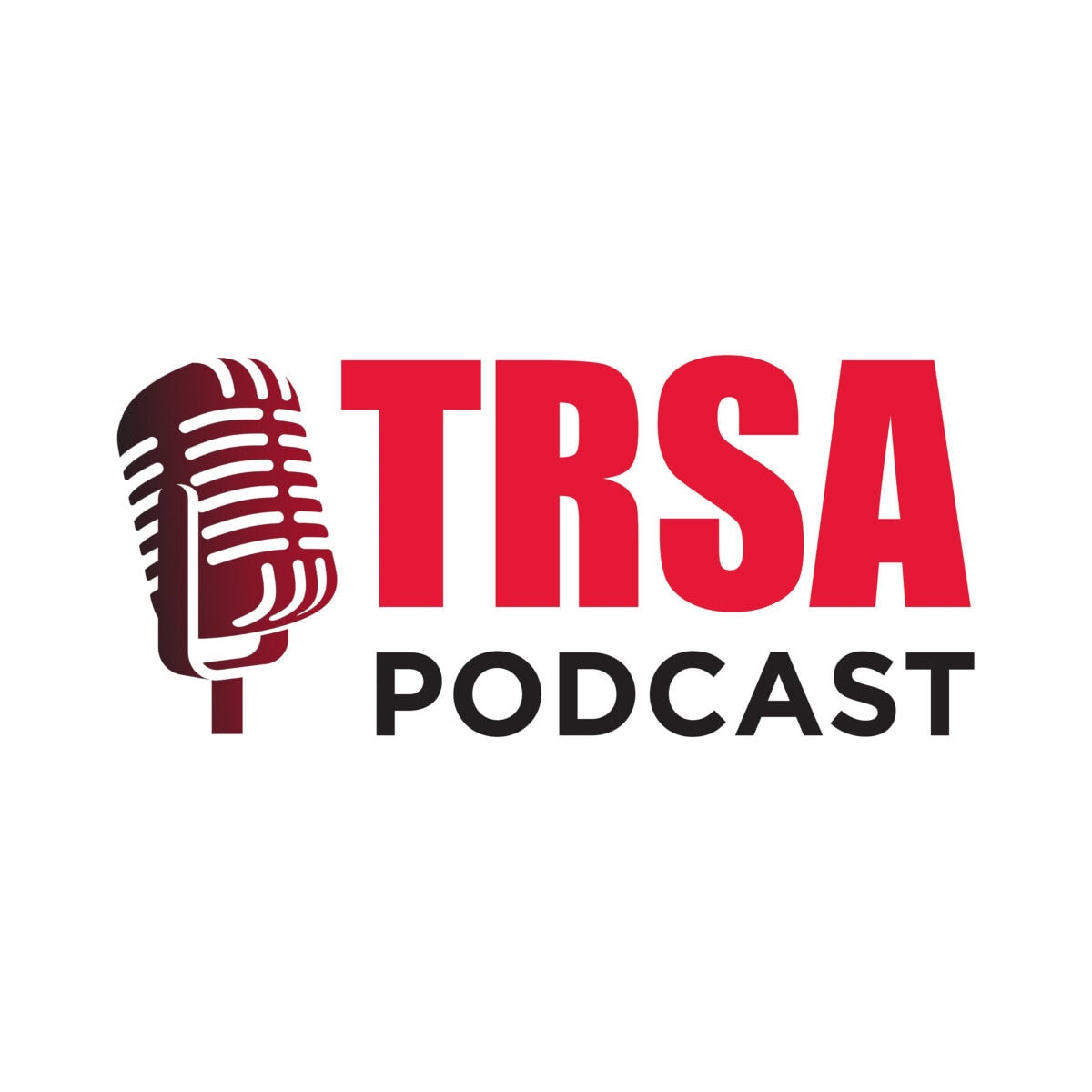Karen Griffiths, the human resources and safety director at Loop Linen Service in the New Orleans area, and Angela Howard, the vice president of people development and human experience at Spindle in the Chicago area, discuss the policies their respective companies are putting in place as they move toward ramping up operations. For more COVID-19 news, information and resources for your linen, uniform and facility services company, visit our website.
Welcome to the TRSA podcast. Providing interviews and insights from the linen, uniform, and facility services industry. Most Americans might not realize it, but they benefit at least once per week from the cleanliness and safety of laundered, reusable linens, uniforms, towels, mats and other products provided by various businesses and organizations. TRSA represents the companies that supply, launder, and maintain linens and uniforms. And in this podcast, we will bring the thought leaders of the industry to you.
I’m your host, Jason Risley, the senior editor of digital and new media at TRSA, and this is the Linen, Uniform, and Facility Services Podcast, interviews and insights by TRSA. These are certainly trying times for the global linen, uniform, and facility services industry and the TRSA staff is dedicated to helping the industry move past this pandemic and into a healthier business climate. The last couple episodes of the Linen Uniform and Facility Services podcast have focused on COVID 19, including an overview of the pandemic from a retired US Centers For Disease Control and a World Health Organization epidemiologist, as well as tips on communicating with your employees about the virus and best practices to ensure employee safety from a prominent member of TRSAs Human Resources Committee. In today’s episode, we’ll hear from Karen Griffiths, the Human Resources and Safety Director at Loop Linen Service in the New Orleans area and Angela Howard, the vice president of people development and human experience at Spindle in the Chicago area. Karen and Angela will talk about the policies their companies are putting in place as they move toward ramping up operations as more businesses open up in their operating area and across the United States.
Good morning, everyone. I hope that everyone is staying safe as we learn to live in this new normal. We here at Luke Lennon are preparing for the reboot following the impact of COVID 19. COVID 19 has impacted this world and more locally, the the business of Loop. And as a result, we have experienced a drastic loss in business, culminating in a loss of revenue and a loss of activity in our plan.
March 1, 2020, Loop Linnen employed 145 staff members. And by March 31st, we were down to 75 employees. In the initial phase of COVID 19, we experienced a reduction in staff and created a task force team with 2 goals. 1 was to reach out to our customers who had not contacted us regarding the state of their business, and 2, to recover products, both clean and soiled, from these establishments. The unique opportunity we have been afforded was to conduct a thorough top to bottom cleaning of our plant and do a product inventory.
We were also able to streamline processes and, as a result, reduce cost. As we look at the reboot, our reboot has begun in limited fashion. We’ve been able to add routes, and we hire several employees who were laid off. In our new hire package, for employees that are returning, we are going to provide a skeleton onboarding packet, including a welcome back letter, thanking them for their patience and their dedication to the company and the business. New hires coming in will go through the full onboarding process.
We’ve also included a couple of new policies, one including infectious disease and the other communicable disease. We may create others as needed. We have a reboot plan by department mapped out, sales, service, and production. Sales will be full 5 days, feet on the ground, and their focus will be the current customer set to find out the current customer status and restart the customers that were previously closed. Service will gradually increase staff according to the customer returns, and their focus will be deliveries and customer service.
Production, which is sawroom, washroom, flatwork, and maintenance, will focus on sorting foil linen and noting the damaged linen since we have a lot of linen that’s still in customer possessions. The washroom will process foil linen through the hygienic and clean process and flat work for iron and package linen. Maintenance department are gonna focus on maintaining our equipment at any spot special projects that we may have. And so our new normal for the foreseeable future demands several adjustments to our way of existing while at work. We’re encouraging employees to frequently, hand wash.
We’ve provided sanitation space in throughout common areas. We’re doing temperature checks as employee enters the building and providing every employee with masks and gloves and encouraging them to do social distancing as much as possible within the plant. As COVID 19 has had an unimaginable impact on the world and our business, we are confident that the doctor will recover. It will take time, patience, and strategic strategy. We’re up for the challenge.
Stay strong. Thank you. Thank you very much, Karen. Now for a brief message from TRSA. Hi.
I’m Joseph Ricci, president and CEO of TRSA. As the economy has slowed to a grinding pace, we know many of you are struggling while others are working overtime. As your trade association, TRSA is open and working to ensure you have the information and resources necessary to continue operations and disseminate accurate relevant information to your customers and employees. TRSA is also strategically focusing on helping the industry recover by launching market specific business recovery task forces and consulting with economists and futurists to provide members with insight into the new emerging post COVID crisis business environment. With your health and safety in mind, TerraSave has canceled several programs and rescheduled others as virtual events.
These include the recently completed market sector specific virtual meetings with more than 500 participants. We look forward to seeing you again either virtually or when we can begin hosting valuable networking and information sharing events. Please watch your email for announcements of programs that will provide immediately applicable information and offer strategic insight into the reemergence of the economy and our industry. Thank you. Now back to the episode.
Now we will move over to Angela Howard. Today, I I wanted to to talk about, how we’re starting to think about that phased approach and not only returning back to normal, but returning back to a new normal for our businesses and team members. So our the way we’re thinking about this approach is that we really want to, in parallel, focus on the current reality of COVID 19 and for creating that that better tomorrow as we go back to work. So one of the things that we’ve been ultra focused on, is getting back to the basics and acknowledging the fact that, this is not just about physical safety, but also psychological safety for our team members. So, we’ve been super, ultra focusing on that element as we start to think through the current reality and getting back to work.
We knew that, we needed to get back to the basics. And going into our back to work plan, we’ve really been focused on creating connections, safety, security, things like, you know, kind of the soft stuff like comfort during this time. A lot of our team members who are on the plant floor are coming into work every day, coming back to families, or are working from home and, you know, have to balance between work and life. So if you go back to psychology 101, if any of you took psychology classes, you may have learned about Maslow’s hierarchy of needs. So it simply states that in order to climb this pyramid, you must you must have one need met in order to reach your next goal.
So our goal with our back to work plan is around providing a really rock solid foundation at work and at home so people can come back to work stronger and for us to really strengthen our workforce. One of the things that we’ve been implementing is a pulse survey, a work force pulse survey. This has been really instrumental in understanding the barriers to the basics that I was talking about before that we’re trying to achieve. And what we found with our recent pulse is that we’re hitting our marks on things like safety, things like the ability for our team members to balance work, personal life, and one to one connection with between leaders and team members is really, really crucial to ensure that everyone creates a sense of continuity as we transition back. Our next objective, which is really baking out the stages of returning back to work.
And so we will certainly be we’re in our in very early stages of really narrowing down the activities around our back to work plan, but we will certainly be using the federal guidelines for individuals and employers as a cornerstone. And in addition, we’ve started to really think about themes around this back to work plan. So this is what we’re considering. It’s not just about physical safety of our team members, but we’re really focusing on the entire human. So taking an opportunity to think about, you know, the silver linings that have been created throughout this process and really use that to catapult our business forward and to run our operation in a better way.
We’re early in our stages, but two actions that we’ve taken thus far is, 1, we’ve we’ve implemented mandatory regular check ins between leaders and team members. Our goal here is to increase connection and build muscle around leadership to be more proactive and nimble. You know, we we really wanna shift the focus of transitioning this back to work plan for the executive team and the leadership team, but also everyone who interacts with our team members every day. The second action, we’re considering implementing a, employee assistance program. For those of you who don’t know what employee assistance program is, it’s a resource to help, folks balance work and life.
It provides support through hardships, stress, and critical life events like COVID 19. So we’re considering this program. It’s especially important to consider mind and body when it comes to, getting folks back in the workforce. And then lastly, this may seem simple, but, we we really have rallied a a cross functional group across spindle, our safety team, our IT team, our HR team, which which I head up, in making sure that we are really gaining commitment around the activities that we need to accomplish. So we’ve been developing mechanisms to ensure we’re capturing and holding people accountable to our back to work plan.
So we’ve been using tools like Asana to track progress and meet. We have a task force that meets every single day. So it’s a little scarce right now, but how are we keeping track of all these activities as we, get back to a better normal? You can access a variety of materials on COVID 19, specifically designed for members of the linen, uniform, and facility services industry at www.trsa.org/covid19. Again, that’s www.trsa.org/covid19.
Today’s episode of the podcast featured excerpts from a recent TRSA Weekly Industry Update webinar. To hear full broadcast of TRSA Weekly industry updates as well as a full library of recordings related to COVID 19 and more, visit TRSAs on demand learning center at www.trsa.org/ on demand. Thanks again for tuning in to today’s episode of the podcast. And as always, make sure you subscribe, rate, and review our show on iTunes, Google Play, and Stitcher. Additionally, follow TRSA on Facebook at trsaorg, on Twitter at trsa, on LinkedIn at Textile Rental Services Association of America, and on Instagram at trsaorg.
Sign Up For Our Newsletter
Receive the latest updates on the linen, uniform and facility services industry from TRSA delivered straight to your inbox.









